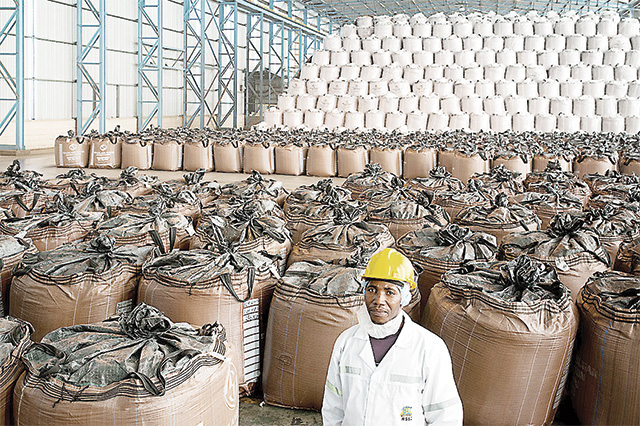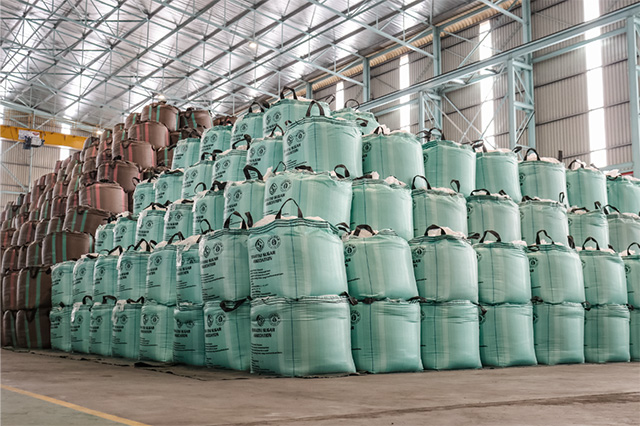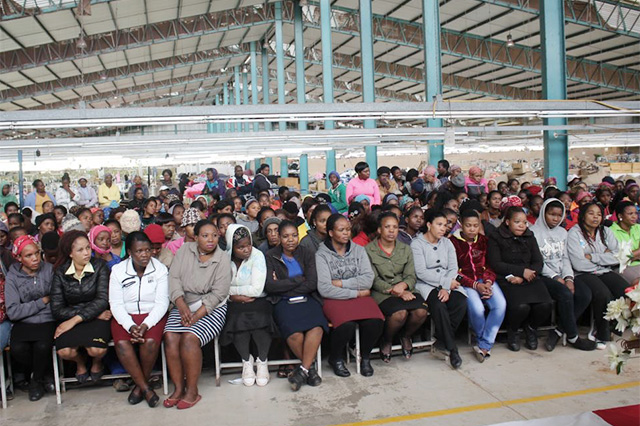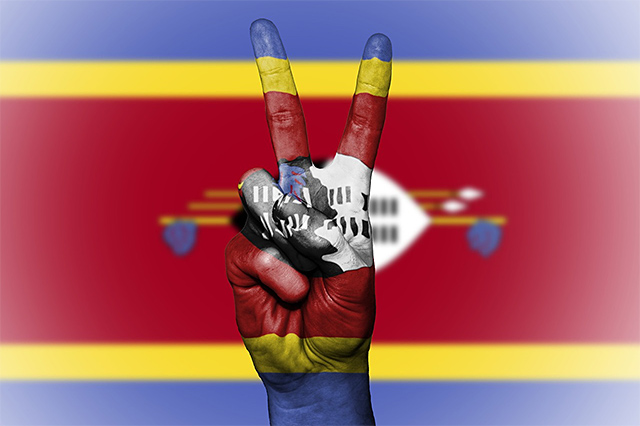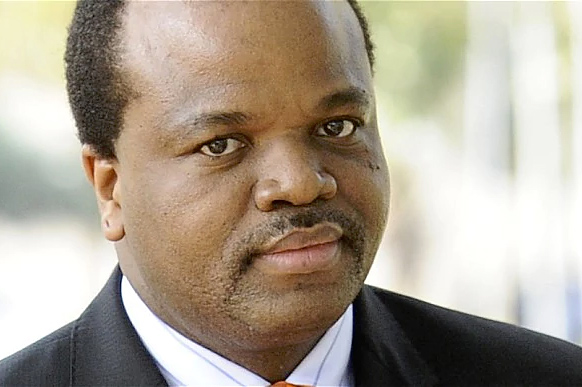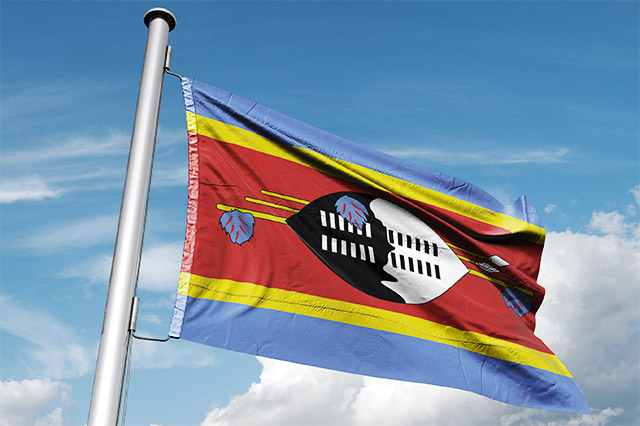Swaziland: AGOA effects (to be felt) sooner rather than later
This week, a majority of Swazi citizens will be holding their breath as the United States of America decides whether to keep Swaziland as a beneficiary of the AGOA programme.
Should the USA pull the plug on Swaziland, the kingdom will, from January 2015, no longer enjoy importing goods into America under duty-free conditions.
Swaziland will be left with until December 2014 to benefit from the African Growth and Opportunities Act.
However, US Ambassador to Swaziland Makila James, in an exclusive interview on Wednesday, told the Sunday Observer that the impact of losing the AGOA eligibility status would be felt sooner than 2015.
“The economic impact is going to be much sooner than the end of the year,” she said. The ambassador pointed out that this was because the many firms that export goods to the US markets usually place their orders between June and July. She said, therefore, the firms, most of which are in the textile and apparel industry, might not wait until the end of the year to decide on whether to continue business in Swaziland or not. Efforts to get comment from some of the companies were unsuccessful as some did not respond to questionnaires sent to them and others said they would prefer to speak only after the AGOA.
Information available shows that there are at least 17 300 people employed by the textile industries and could lose their jobs should the kingdom lose its AGOA eligibility.
Texray has one of the highest number of employees with 6 000, Zheng Yong in Nhlangano has 2 000, Leo Garments employs 1 480, Leo Garments has 800, the Great Spring has 600 and HO’s Enterprise has 750. Ambassador James said the US was more than mindful of the impact that comes with losing the AGOA status.“There will be loss of jobs, which is why we are working so very hard to prevent such from happening. If the jobs are lost, that will impact on poverty and the economy.” She said with the looming possibility of losing AGOA, the United States was not ‘jumping off the buss without notice’. James said the Swaziland government has known since 2001 that there were concerns from the US regarding certain legislations and the kingdom has always been making the assurance that ‘something was being done’. “We are therefore not abandoning the partnership but we want government to act in good faith and honour its commitment. We have only asked the government to honour its commitments,” she emphasised.
Meanwhile, University of Swaziland economics lecturer Dan ‘DK’ Dlamini told our sister publication, the Observer on Saturday, that the consequences of losing AGOA can be so severe that Swaziland cannot afford to do without.
“If AGOA were to be withdrawn, we are likely to see a huge fall in employment figures, in large amounts in fact, it would mean we would be left with South African industries and probably a slight share in the European market, which is not much,” Dlamini opined.
Under AGOA, the US grants duty-free access of specific products, including textiles and clothing from African countries to its market.
AGOA contains specific criteria that countries must meet to enjoy the benefits of the programme, including criteria related to internationally recognised workers’ rights. In 2013, Swaziland exported US$49.749m (about E500m) worth of apparel to the US, which was a decline of 16.88 per cent from the E59.855m (about E600m) worth of exports in 2012.
Govt keeps USA in the dark
Today is four days before the United States of America government makes the crucial decision on Swaziland’s status under the African Growth and Opportunity Act (AGOA) programme.
By Thursday, May 15, 2014 – deadline day, Swaziland should have ‘fully’ met the five benchmarks outlined by the USA or lose its AGOA eligibility status.
The benchmarks include full implementation of amendments to the Industrial Relations Act to provide for the registration of federations; full passage of amendments to the Suppression of Terrorism Act; full passage of amendments to the Public Order Act; full passage of amendments to sections 40 and 97 of the Industrial Relations Act; and drafting of a code of conduct for police officers during public protest actions.
Despite time running out, USA Ambassador to Swaziland Makila James, during an exclusive interview on Wednesday, said her office had not received an update from the kingdom’s government on progress made, if any, on the benchmarks.
Government has not publicly spoken about the benchmarks except for having tabled and later withdrawn the Industrial Relations (Amendment) Bill.
The Bill was withdrawn with almost a month before deadline and soon after a delegation from the US had left the kingdom after meeting government and union federations over the AGOA eligibility status.
Ambassador James said they have consulted broadly with government and indicated that they would like to get feedback on where and how things were going.
“I have personally not received any feedback from them on what is happening. We have been following the news media very closely. We have looked at government’s position regarding the Industrial Relations Bill that was withdrawn possibly to make edits. We saw the minister of labour welcoming that since she saw it as an opportunity to get it right and we took that as a good thing for government as it gave us the idea that they are moving towards a certain direction. We have not heard any responses from them but we didn’t just sit back and wait for them to call us,” James said.
She said they consulted with various stakeholders including labour unions and various government ministries but none of these had been able to tell them of any definitive action that has been taken regarding the five benchmarks.
The ambassador then sought to set the record straight on the withdrawal of the IR Bill from parliament and said the US had nothing to do with this decision.
She said they heard reports that government has said it was the US government that asked the Bill to be withdrawn.
“We never asked that the IR Bill be withdrawn. It is not our right to tell government how to legislate or how to go about the method of legislating. We simply indicated to them that the current draft might still need more work, and how the government chooses to do that is up to them,” said Ambassador James.
Asked whether there could have been an alternative way to rework the Bill without withdrawing it from parliament, James responded: “I am not going to speak on how the Swazi government does legislation in this country. That is beyond the American ambassador’s responsibilities to know, understand or suggest. But I would say I have been in this country long enough to see that when the executive and the legislature work together things get done.”
She made an example of the time in 2013 when the executive and legislature worked together to pass the election laws ‘in record time’ in readiness for the 2013 National General Elections.
On whether she thought Swaziland would meet the Thursday deadline for AGOA, the ambassador said she continued engaging with government even at the highest level and would not stop doing so thus she hoped government would not stop too.
“Time is very short but quite frankly I am not going to pre-judge what has happened and, we are not even aware of. We have to hope that the government is going to live upto what they asserted, that they would love to see AGOA remain in the country and so all I can say is that I am continuing my efforts,” said James.
She added that the deadline was not going to change and the embassy cannot do anything about it since the matter is controlled from Washington.
Terrorism Act still a problem - USA
Makila James, the US Ambassador to Swaziland, is concerned that evidently nothing seems to have been done to change the broad definition of the Suppression of Terrorism Act.
Amending the Act is one of the five conditions that have to be met for the country to maintain its AGOA eligibility status.
The ambassador said even though he has not been in Swaziland long enough to give a historical background on how often the Act has been used, she had however, seen it being used more often this year than any other time.
“It is being used with the broad definitions we have raised concern about and so I have no reason to believe that it has changed as we speak because it is being used to arrest people and to prosecute then under these broad definitions,” James said.
She said the Act was being used to arrest people for wearing t-shirts and those who have not committed violent acts.
“These are the issues we have raised with the government to say these are the things that get people concerned on the what is going on with respect to freedom of expression in Swaziland,” said the ambassador.
She went on: “The STA is a bad piece of legislation because it is overly broad, that is what we have been saying is an issue.”
Even though she did not tie concerns to any particular cases, it happened two weeks ago that nine members of the banned People’s United Democratic Movement and the Swaziland Youth Congress were arrested and charged under the Act.
Seven of the accused have since been released on bail.
Govt wants no crocodile tears
Government says a report will be issued on how the AGOA threat is being tackled.
For now, however, it prefers to say nothing and insists on playing their cards close to the chest.
“We stand by our statement that we play our cards closer to the chest to allow the parties involved to finish their job and issue a report without being disturbed by half informed opinions, denials, fox policies and crocodile tears,” said Government Press Secretary Percy Simelane.




